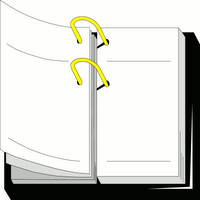 Don't ever make the mistake of thinking "this is a diary assignment ... that means I can just write whatever I like." As any self respecting tertiary student knows, lecturers are always looking for 'something'. I can almost gaurantee you that the 'something' is most often linked to analysing, reflecting and pulling together what you read, see, feel and experience in such a way that you can demonstrate understanding and application of the topic at hand.
Don't ever make the mistake of thinking "this is a diary assignment ... that means I can just write whatever I like." As any self respecting tertiary student knows, lecturers are always looking for 'something'. I can almost gaurantee you that the 'something' is most often linked to analysing, reflecting and pulling together what you read, see, feel and experience in such a way that you can demonstrate understanding and application of the topic at hand.Most student diary/journal assessments include an element of analysis. So despite the label of dairy or journal, this assessment rarely means you are off the academic hook. Like last week's entry mentioned ... it is important to make sure you cover what the lecturer/University/college want from you. Do be clear about format and level of analysis by asking your lecturer.
So what is the key here?
The journal assessment is usually set becasue the lecturer really wants to hear your opinion. They want to know what YOU think about the topic at hand. They want applied thinking about the topic at hand clearly DEMONSTRATED. This means that your entries need to refer to what you are reading (go so far as to show off your broad reading on the topic - if appropriate).
A journal rarely asks for a description of what you are reading (or if it does this will usually be a small component of the journal and thus a small percentage of mark allocation). The person reading the journal should be able to understand connections you make to the material in class, your readings and your experience or the experience of others (ie other research). What does it mean to you when you put it all together? How does it change how you see the topic at hand?
In short ... the integration and analysis in your journal .... the reflection and integration of knowledge ... is where the marks are. (Not that any of you are just doing it for the marks now are you?!.)


1 comment:
Thanks Pamela. This is a help.
Post a Comment